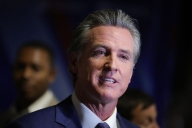You have /5 articles left.
Sign up for a free account or log in.
Several months ago, in the first episode of The Chair, a Netflix comedy-drama, a popular literature professor throws up a mock Hitler salute while lecturing about the relationship between fascism and absurdism. A cellphone video of the salute promptly circulates, a social media storm ensues, angry students demand the professor’s ouster and a supine administration capitulates. While some academics have derided this episode as “utterly improbable,” others have termed it “painfully believable” and “an all-too-plausible scenario.”
The experience of a business communications class at the University of Southern California last year offers a real-life example that might have come straight out of The Chair. The instructor used a Chinese phrase that sounds similar to an English racial slur. The business school dean apologized to the students and recruited a different instructor to teach the course. However, a petition for the professor’s reinstatement garnered thousands of signatures, and many commentators concluded the university’s response was “excessive and chilling.”
Other examples tend to be more complicated. Last month, Bright Sheng, one of the University of Michigan’s most distinguished professors, showed his undergraduate music composition class a 1965 film of Shakespeare’s Othello, with Laurence Olivier playing the title role in blackface. Sheng’s purpose was to help music students understand how Giuseppe Verdi transformed Shakespeare’s play into an opera, but his failure to provide context and Olivier’s caricature offended many students. Protests followed, the school’s dean apologized, and the incident was referred to the university’s Office of Equity, Civil Rights and Title IX. When Sheng’s apologies did not lessen the outrage, he voluntarily stepped down from the class. In October, without providing any explanation, the Michigan Title IX office dropped its review of Sheng’s case. To some, the incident was an example of “campus ‘cancel culture’ run amok”; to others, it was an appropriate response to a professor’s gross insensitivity.
The two cases are not isolated incidents. The Foundation for Individual Rights in Education has identified 426 cases of faculty members who were “targeted for sanction by ideological adversaries” since 2015. According to FIRE, “targeting incidents are on the rise and are increasingly coming from within academia itself.” Moreover, FIRE’s numbers do not include cases handled “more quietly behind the scenes,” nor do they account for the chilling effects such targeting has on other faculty.
The FIRE statistics also do not address the increasingly common phenomenon of students who fear ostracization or social-media mobbing by other students and choose to censor themselves on hot-button topics. According to a 2020 survey, 31 percent of campus Democrats and 48 percent of Republicans report a reluctance to speak their minds.
As we have argued elsewhere, the principal threats to academic discourse at the moment come from the right, but those threats are largely external, whether they emerge from online trolling by the “right-wing outrage machine” or legislative attempts to restrict the teaching of critical race theory or other so-called divisive concepts. By contrast, “cancel culture” on college campuses is an internal phenomenon, driven largely though not exclusively by the progressive left. Ironically, as Jonathan Rauch points out in The Constitution of Knowledge: A Defense of Truth, students by large majorities want to hear a wide range of viewpoints. Too often, however, in what Rauch calls the “tyranny of the few,” a small minority dominates campus discourse, chilling the expression of views that might offend one or more segments of the campus community.
In our view, constraints on discussions of important social issues, however sensitive, subvert the goals of a liberal arts education. Critical thinking requires the freedom to take ideas wherever they lead, as well as a willingness to consider opposing viewpoints and re-examine one’s own assumptions. Academic freedom means faculty members and students must be able to teach, learn about and advocate for unpopular positions and contrarian ideas, even if doing so makes some classmates and colleagues uncomfortable.
Encouraging Dialogue Across Differences
How can colleges and universities promote an environment more conducive to these values? Here are a few recommendations.
Institutions can encourage students to confront diverse viewpoints right away. Instead of allowing first-year students to choose their roommates or offering housing at widely different price points, leading to segregation by income, housing assignments should be random. Just as students should be exposed to a wide range of people, academic disciplines and potential majors at the beginning of their studies, so too should they encounter students with different backgrounds and perspectives in their residence halls.
As Ronald J. Daniels, the president of Johns Hopkins University, notes in What Universities Owe Democracy, connecting students across differences through physical spaces can then be expanded to other aspects of the campus, from social spaces to walkways, and with shared facilities and programs. He adds that “our universities too often model speaking to someone, rather than with someone.” But “opportunities for dialogue across difference … can produce real gains in students’ openness to other people and ideas.”
To promote such dialogue, colleges and universities should, for example, sponsor debate teams of the sort that used to be prominent and prestigious in higher education. Administrators should also support student publications, campus courses and other programs featuring contrasting viewpoints. Hamilton College’s Common Ground program and Cornell Law School’s Peter and Marilyn Coors Conversation Series, for example, bring together leading thinkers with very different perspectives for moderated conversations on hotly debated issues of the day. At Duke University, the Devil’s Discourse podcast series featured students engaged in candid and passionate yet respectful podcast conversations on issues from health care to immigration.
Most important, since free and unfettered expression of ideas will not become the norm on campuses unless and until senior administrators, faculty, students and staff speak up and speak out, colleges and universities should offer to fund proposals from individuals and groups with their own ideas about how to encourage dialogue across political differences. Hamilton has made a start by funding a staff initiative to train students to act as facilitators of difficult conversations.
Fostering civil discourse on contentious issues is not easy, but it is central to the academic mission. In an increasingly polarized society, it may also prove central to sustaining our democracy.








